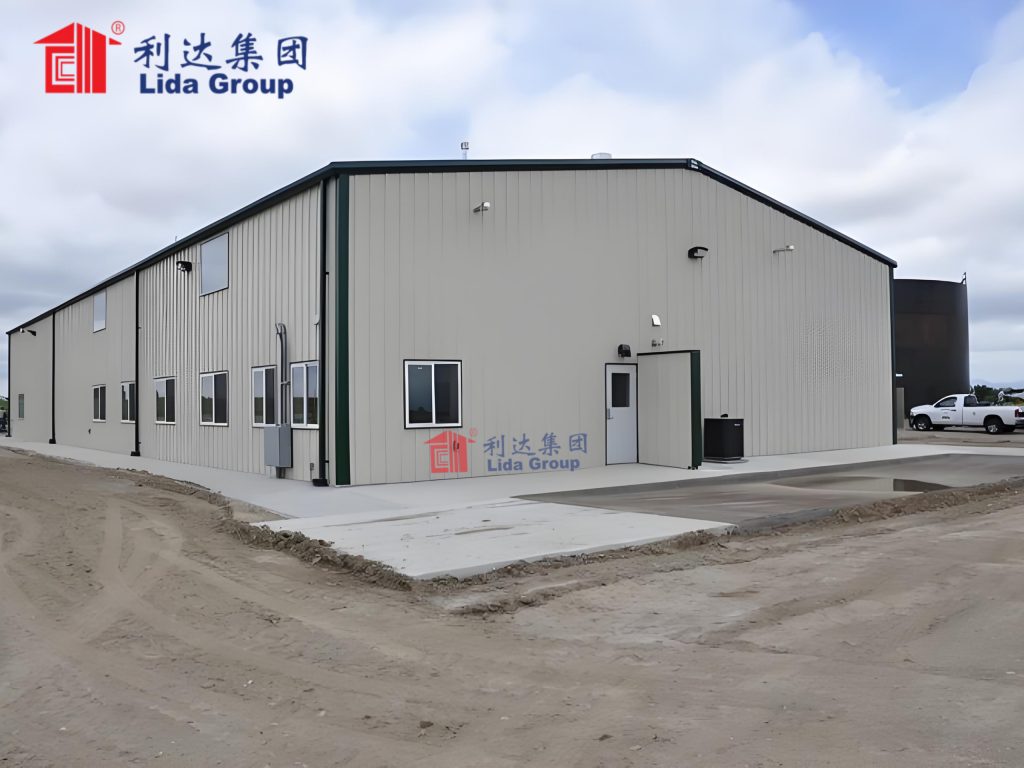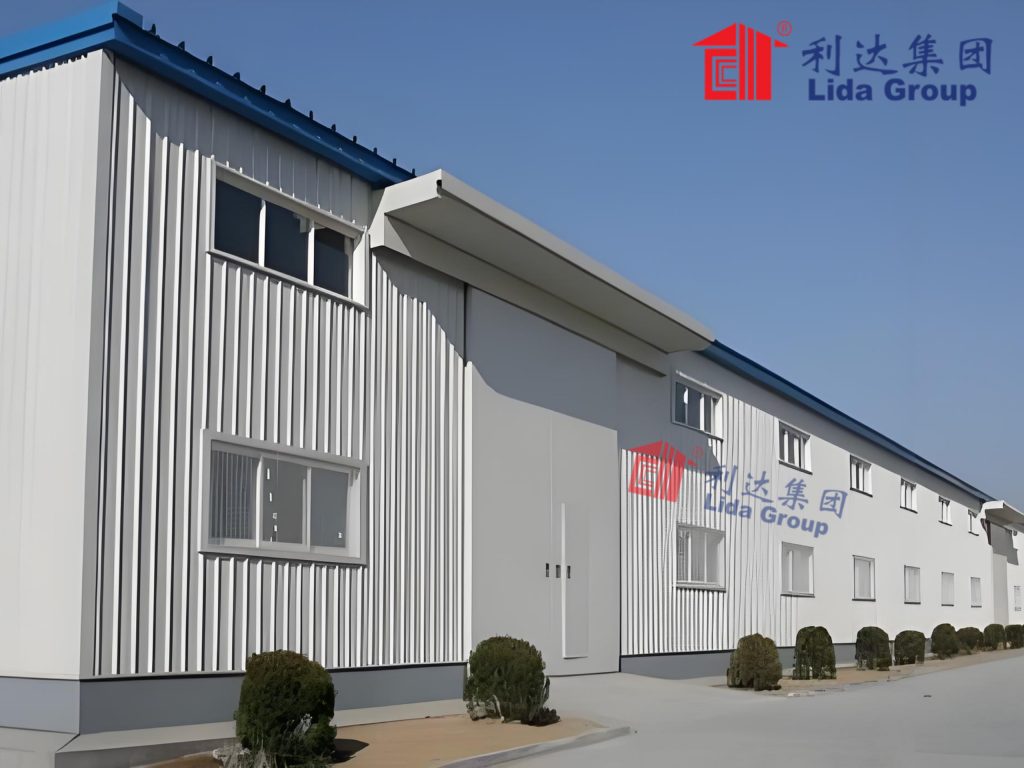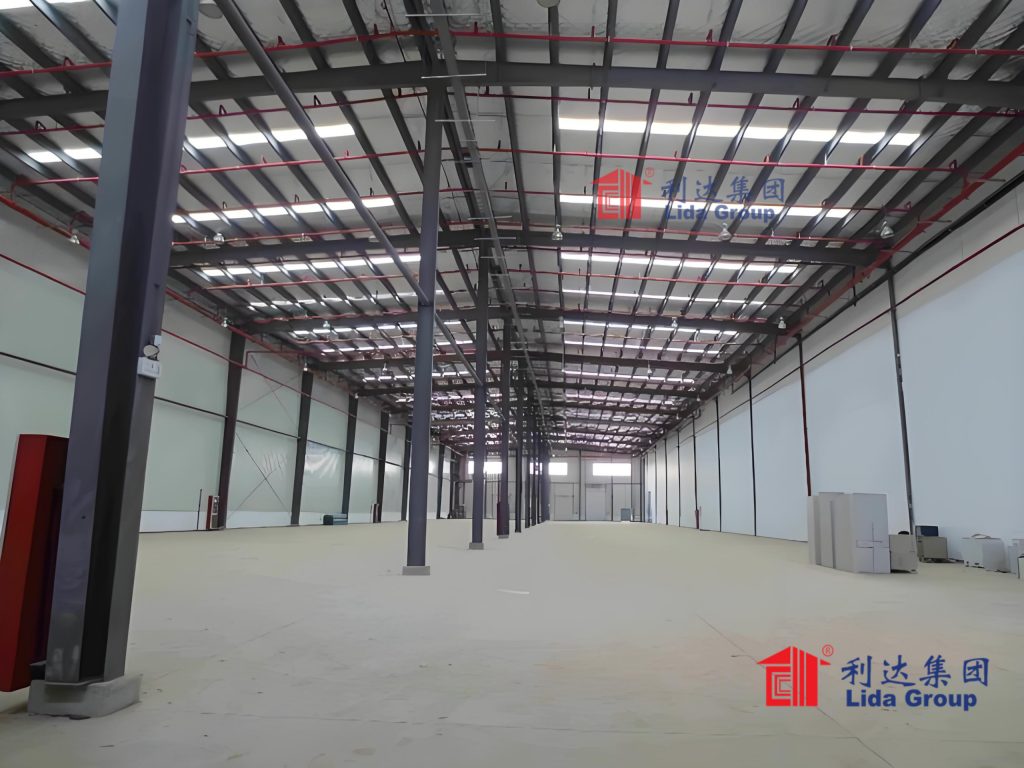A new white paper from Lida Group evaluates the vast potential for mass producing customizable prefabricated building components optimized for their scalable modular construction methods. By leveraging advanced manufacturing technologies, Lida Group concludes entire building envelopes and internal structures could be transformed from labor-intensive wet construction processes to lean off-site assembly lines producing high volumes of standardized yet configurable panelized products.
The white paper outlines a vision for dedicated ‘Megafactories’ capable of rolling out unlimited quantities of versatile prefabricated building constituents 24/7 to satisfy any project requirement. Leveraging Industry 4.0 digital fabrication technologies including robotics, AI and Internet of Things connectivity, such facilities would allow architects and engineers to ‘configure to order’ entire building systems composed of interlocking steel-framed wall, floor and roof cassettes in single or multiple unit batches.

Components would be cold-formed from lighter recycled or low-carbon sheet steel into modular sub-assemblies utilizing precise nesting algorithms maximizing raw material yields. Integrated with Building Information Modelling, the Megafactories’ flexible manufacturing cells could cut, drill, notch, weld, finish and test to the highest quality standards total building envelopes tailored to withstand any local code or environment from congested cities to remote mining outposts.
Detailed in production simulations, a single Megafactory covering several hectares could rapidly turn out standardized yet endlessly customizable building panels in quantities matching the busiest global construction markets’ daily requirements. Precision automation ensures uniform dimensions, load ratings, thermal breaks and connections whether fabricating single family homes or high-rise towers. Meanwhile, modular component designs allow unlimited expansion of additional satellite factories with minimal lead times as demand dictates across entire regions or nations.

Testing prototypes at Lida Group’s existing research centers, prefabricated building panels have exceeded performance of the most stringent codes and standards. Sandwich-style roof and wall cassettes fabricated from galvanized steel facings encapsulating rigid polyurethane foam cores demonstrated watertight integrity under extreme weather conditions. Floor decks reinforced with cellular concrete infills withstood live and seismic loads many times greater than occupancy demands. All components interconnect seamlessly on-site like interlocking toy bricks for buildings assembling in fraction the time of traditional ‘stick-built’ methods.
For developers and contractors, mass customized prefabrication transforms project timelines and risk profiles. With entire building envelopes ordered months in advance parallel to site preparations and foundations, enclosed structures can rise steadily irrespective of weather under only basic supervision. Materials are factory-assembled, tested and arrive pre-plumbed, pre-wired and labeled for ease of erection and interior finishes. Construction loan terms reduce as developers realize sales revenue streams much earlier, recouping capital rapidly.

Beyond construction efficiency, white paper analysis showed mass customized off-site fabrication delivers life-cycle cost savings up to 30% over traditional build methods and 15% versus basic modular solutions according standardized industry benchmarks. Materials wastage is minimized while recycling structural steel reduces embodied carbon footprints versus concrete or masonry alternatives. Standardized connections mean simple joining without special skills or tooling on-site. Renovations are simplified by interchangeable modular components unlocking inherent adaptability as building uses evolve over decades.
Most significantly for architects and engineers tasked with solving pressing housing shortages, mass customized fabrication frees designs from conventional limitations. Buildings no longer constrained by dimension or package limitations of transporting singular modules can construct complex geometric forms optimized for solar access, cross ventilation or unobstructed internal spans. Facades unleashed from repetitive restrictions reflect clients’ branding or support elaborate landscaping integrating structures harmoniously within sensitive environments.
In summary, the white paper made a compelling case mass producing versatile prefabricated building components optimized for Lida Group’s modular systems could revolutionize global construction. By leveraging advanced digitally-driven manufacturing, entire customizable building envelopes and enclosed spaces can roll off assembly lines for unlimited projects accelerating housing development sustainably without compromising design freedom or quality. Mass customization through mass production unlocks immense untapped potential for scalable, bespoke construction worldwide.

Related news
-
Journalists profile scalable innovations enabling more communities to access dignified, relocatable living quarters through Lida Group's convenient install container prefab units.
2024-08-27 17:04:46
-
Officials recognize contributions of Lida Group's engineered steel-based technologies adapted to local needs through reconfigurable pre-engineered modular components.
2024-08-29 14:15:26
-
Report highlights sustainability and versatility of Lida Group's movable prefab system to deliver temporary housing integrated with renewable power and sanitation.
2024-08-27 16:47:30
contact us
- Tel: +86-532-88966982
- Whatsapp: +86-13793209022
- E-mail: sales@lidajituan.com


